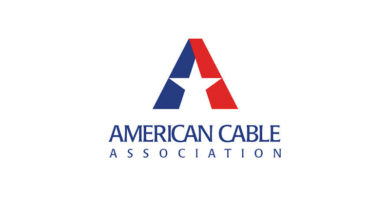Prioritizing Availability and Reliability
By Derek DiGiacomo and Dean Stoneback
New SCTE Standards Groups focus on Network and Service Reliability and DOCSIS 4.0 Tools
Standards ensure that innovation is developed from sound foundational technologies. Standards in our industry help document and communicate the best way to deliver the best connections. The SCTE® Standards program is the only American National Standards Institute (ANSI) accredited program in the cable telecommunications industry. Expert members drive standards and operational practices that allow products to be interchangeable and interoperable, thus accelerating the deployment of products and technologies in an ever-changing broadband landscape. Everybody wins.
By partnering with industry experts, SCTE develops technical standards and operational best practices. More than 130 member organizations, including service providers of all sizes, contribute to the work which is vital to the success of the rapidly advancing broadband telecommunications industry. We are excited to introduce two new standards working groups focused on availability and reliability.
Network and Service Reliability and DOCSIS 4.0 Tools and Readiness are both operating under the SCTE Network Operations Subcommittee (NOS). Each of the new groups will examine and develop ideas and approaches that can help address network and service reliability of next generation networks. The goal through these consensus-developed standards is to design and deploy best practices that enable the capabilities of cable’s 10G platform. As with all of SCTE’s existing standards, these new groups will help to accelerate new applications of telecommunications in their industries.
Defining a Scope of Excellence for the Industry
As with any industry technological advancement, standards need to be constantly evaluated and updated to ensure effectiveness, efficiency, and excellence. Critical to the mission of the SCTE Network Operations Subcommittee is the clear focus on network testing, measurements, business continuity, disaster recovery, and other topics relevant to the performance and operational management of cable networks. Our industry is constantly evolving through continuous innovation, and network expansion demands new and advanced tools and measurement techniques to support the future network. There must be standards and best practices to effectively keep pace with the innovation needed to meet the burgeoning bandwidth requirements, and the ANSI-accredited Standards program is essential for developing these documents to support the cable telecommunications industry.
The 10G platform is fostering a cable broadband evolution, and providers are actively advancing speed, improving latency, creating better reliability, and enhancing security of their networks for subscribers. These two new working groups were developed to support that process in a timely fashion. Both the Network and Service Reliability and DOCSIS 4.0 Tools and Readiness groups have broad representation from across the industry, including operators and suppliers, but others should consider joining if they would like to participate in defining these important standards and operational practices.
The new working groups are currently working on the best approach to aid cable broadband service providers with a common reference for assuring the highest availability and reliability of network and service offerings. Over the next 12 months, both groups will propose new operational practices in the following ways:
- measurement definitions,
- how they relate to service and network reliability,
- how to track statistics and interpret them,
- provide use cases aligning to the measurements for network and service reliability; and,
- how to set control limits
Assessments for each area will be completed based on the four pillars that make up the 10G platform: speed, latency, reliability, and security. These new projects will benefit cable broadband service providers as well as the vendors building the equipment being deployed in the next generation networks. The primary focus is to build a better broadband experience for all customers and improve access everywhere.
DOCSIS 4.0 Tools and Readiness
The SCTE NOS DOCSIS 4.0 Tools and Readiness working group creates standards and operational practices with the necessary tools for engineering, deployment, operations and maintenance groups. The group will pursue optimization of HFC access networks for DOCSIS 4.0 technology deployment. The group will also create a common tools, architecture and ecosystem for DOCSIS 4.0 network operation, including tools for architects, engineers, NOC and field technicians, and customer service.
The DOCSIS 4.0 Tools and Readiness working group is chaired by Will Berger, vice president, Telemetry Development at Charter Communications, Inc., with Justin Riggert, senior principal engineer at Comcast Cable, serving as vice chair.
Network and Service Reliability
The SCTE NOS Network and Service Reliability working group creates standards and operational practices to increase network and service reliability. The group will focus on all factors which impact reliability, including architecture, design, power, materials, and human interaction.
Together, the team goal is to assure a resilient, self-monitoring and self-healing network that works as it should without sudden glitches, slowdowns, freezing and other interruptions. The scope includes every portion of the cable network — from coax to optical fiber to Wi-Fi — and all its software and hardware components, which must all be continuously maintained and perform as intended. The scope also includes optimal usage of proactive monitoring and maintenance, which identifies and fixes potential issues before they impact the user experience.
The group is led by Shane Portfolio, senior vice president of Field Operations Engineering for Comcast Cable, serving as chair and Aaron Weimer, chief technology officer of Wiring the Future Networks, servicing as vice chair.
Shared Intelligence for a More Connected Future
The output learned from the SCTE Standards working groups is being collected as the foundation for reference libraries for solutions and innovations. As an industry, we have a lot to learn from each other to empower our pursuit to innovate and create infinite possibilities.
The industry needs your critical thinking, expertise, and shared interest to leverage the technology we have developed to bring us closer, advance our goals, and serve our communities. Please consider joining SCTE and participating in our committees to be a part of standards development, and join representative from network operators like Cox, Charter and Comcast, as well as vendors.
The two new working groups meet on alternating Wednesdays at 11:00 a.m ET. Reach out to Dean Stoneback at dstoneback@scte.org if you would like to learn more, or you may join a working group directly online from the Network Operations Subcommittee page.
 Dean Stoneback,
Dean Stoneback,
Senior Director of Engineering and Standards at SCTE®, a subsidiary of CableLabs®
Dean Stoneback is the Senior Director of Engineering and Standards at SCTE®, a subsidiary of CableLabs®, and is responsible for the development of standards and operational practices for the broadband communications industry. Specific targets include assuring that networks are ready for DOCSIS 4.0 deployments; enabling advanced and IP video services and digital advertising; developing Internet of Things (IoT) deployment methods; and supporting the migration of networks from coax to fiber delivery. Prior to joining SCTE in 2014, Dean spent 26 years with General Instrument, Motorola, and ARRIS.

Derek DiGiacomo,
Senior Director of Energy Management Programs and Business Continuity at SCTE®, a subsidiary of CableLabs®
Derek DiGiacomo is the Senior Director of Energy Management Programs and Business Continuity at SCTE®, a subsidiary of CableLabs®. Under DiGiacomo’s leadership, SCTE, the not-for-profit member organization for cable telecommunications, has seen a dramatic 50% reduction in the dependency on grid power using a renewable power-based microgrid that extends critical system runtime to seven days on average. Derek is a National Renewable Energy Labs (NREL) 2017 Energy Exec alumni.
Shutterstock



